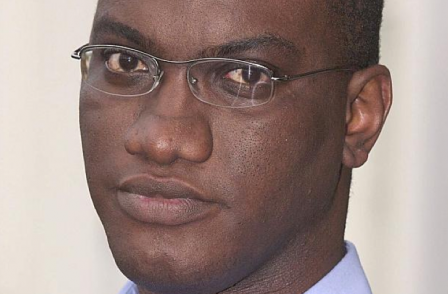
Sun crime reporter Anthony France said he was not concerned when he learned that a paid source was "in all probability" a police officer.
He said getting the information verified was the important part of his job, not questioning the source.
France is standing trial at the Old Bailey charged with aiding and abetting misconduct in public office after The Sun paid PC Tim Edwards more than £22,000 for 38 stories.
In evidence yesterday, France revealed that he was introduced to Edwards as a Sun source by a colleague on the paper.
He said: “I didn’t know who he was or what he did.”
Defence barrister Adrian Keeling QC said: “Did you know he was a police officer?”
France: “No.”
France added: “Some people when they contact newspapers don’t say what they do. For us it doesn’t really matter. Because it is the information that they are providing which is the important thing. Getting the information verified is an important part of my job.”
Keeling asked: “Did there come a time when you realised he was a police officer?”
France then recounted the pair’s first meeting, in the Marquis of Granby pub in Surrey in December 2008.
“From the conversation that we had, the names of people he was naming, I pretty much guessed he was a police officer.
“He seemed to be quite concerned about losing his job but still wanted to get the information out.”
Keeling: “Did it concern you once you came to the realisation he was in all probability a police officer?”
France: “No.”
Keeling later said: “Did you ever ask him where he got the information?”
France: “No…A lot of the stories that he was providing seemed like canteen gossip, the sort of thing that everybody was talking about.”
Asked whether he knew Edwards was accessing secure police systems to find information for The Sun, France said: “I had no knowledge of that at all.”
France said that Edwards would generally just provide the names of people involved in alleged crimes and then he would use The Sun's in-house genealogists to track them down.
France went through every story based on information supplied by Edwards outlining the public-interest justification. Many involved allegations of crime and arrests.
In many cases France obtained further details from the police press office.
One story involved an OAP cautioned for having sex with a horse in a field near Heathrow, three stories involved allegations of pilots flying while over the alcohol limit and another involved a special constable charged with sex offences.
A further story involved a thief stealing from seriously ill children in hospitals. Edwards also provided a tip that a violent criminal had escaped from police custody.
France explained the there was a clear public interest in journalists reporting crime and noted that in many cases Edwards provided stories which would have entered the public domain in any case.
Two of the stories provided by Edwards later prompted corrections and apologies from The Sun.
One of these involved a named police superintendent accused of buying his wife a coat with funds seized from terrorists. Disciplinary action against the officer was not proceeded with.
The other was the story headlined “Scanner glamour ding dong" which claimed a Heathrow worker had been harassed by a colleague who observed her through a full-body X-ray machine. The Sun published a short apology after the woman withdrew her complaint.
France said he did not believe the article was inaccurate, but said: ”Sometimes it's more cost-effective to apologise.”
The prosecution grilled France over a story which appeared in July 2008 about a named BA engineer who was questioned by police after being filmed at work dressing up in high-heeled shoes at night and walking up a make-shift catwalk made of ceiling tiles.
Prosecutor Zoe Johnson QC began her questioning of France by saying: “Do you have anything to say to Howard Mills?”
France: “No”
Johnson: “You named and shamed Mr Mills”.
France: “He was named in the article, the name was certified by the press office.”
Johnson noted that the story included a picture of Mills, named his wife and noted that he had three children. She said: “Don’t you agree that he’s been put up for public humiliation?”
France: “This is a story in the public interest… It’s a true and accurate story.”
Johnson said later: “This was an exercise in titillating the public.”
France: “This is reporting crime”
Johnson: “He was never charged.”
France: ”The CPS said they decided not to prosecute him in the public interest.”
The court heard that the story was given to The Sun a year after Mills’ arrest and that a news agency working for the paper informed Mills’ wife about it.
The court heard that PC Edwards was the officer who had arrested Mills and that he had looked up information about the incident on the police computer to leak to The Sun.
Edwards was paid a total of £1,300 for the story in three separate payments.
The trial continues.
Email pged@pressgazette.co.uk to point out mistakes, provide story tips or send in a letter for publication on our "Letters Page" blog
